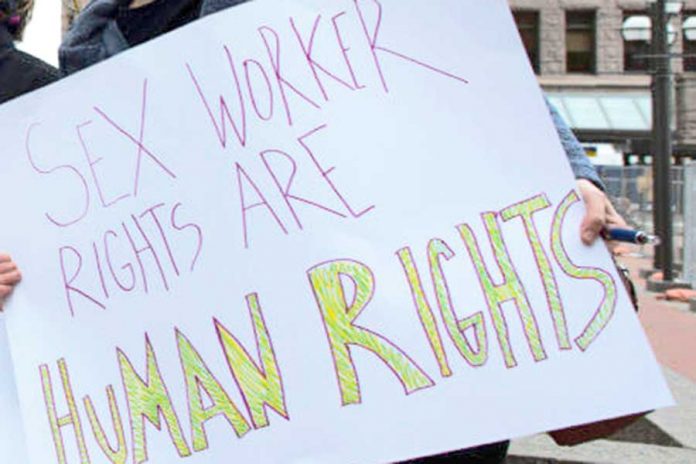On Dec. 19 — the International Day to End Violence Against Sex Workers — U.S. Rep. Ro Khanna (D-CA), along with Rep. Barbara Lee (D-CA) and Senator Warren (D-MA) introduced the SAFE SEX Workers Study Act.
Assessing the consequences of House bill, Fight Online Sex Trafficking Act (FOSTA), and Senate bill, Stop Enabling Sex Traffickers Act (SESTA), the SAFE SEX ACT would require an assessment of impacts on health and safety of people who trade sex when they lose access to internet platforms.
In a video, Khanna said FOSTA-SESTA “has criminalized websites and forced many sex workers onto the street. They’re facing increased violence, increased sexual assault, and they’re less safe because they can no longer screen potential clients online.”
Staff Attorney for Lambda Legal Puneet Cheema said in a statement, “The SAFE SEX Workers Study Act is important because it acknowledges the reality that some people trade sex for economic survival, to meet their basic needs for food and shelter. Some members of the LGBT community, particularly transgender women of color, sometimes rely on sex work because they face extreme discrimination in the formal employment sector. This bill is historic in recognizing that the lives, health, and safety of people who trade sex matter.”
SESTA-FOSTA became a law in April 2018 and amended 230 of the Communications Decency Act. The package was crafted to fight online sex trafficking by holding platforms like Facebook and Craigslist liable for what users post on their platforms, which extended to consensual sex work. But a study of sex workers from grassroots sex worker advocacy organization Hacking//Hustling, along with Whose Corner Is It Anyway, showed 40 percent of sex workers reported experiencing increased violence after FOSTA and 99 percent of participants said they do not feel safer due to FOSTA.
“Our national experience proves that criminalizing alcohol, and more recently marijuana, simply doesn’t work. Criminalizing consensual, private behaviors doesn’t eliminate them; it simply drives them underground and makes traffickers richer. The SAFE SEX Workers Study Act, if implemented, will show that SESTA-FOSTA does nothing but drive sex workers underground, further endangering them,” Anna Forbes, from the Red Umbrellas and Red Ribbons Project, told PGN.
The 2015 U.S. Transgender Survey reported 19 percent of respondents participated in “some type of sex work, such as for money, food, or a place to sleep.” An overwhelming 44 percent of Black trans women and 41 percent of American Indian trans women reported engaging in sex work. The survey also found that those who were rejected from their families were almost twice as likely to become engaged with sex work at some point in their life.
According to the Trevor Project, LGBTQ youth account for as much as 40 percent of the youth homeless population. A 2012 Urban Institute report said homeless LGBTQ youth are seven times more likely than heterosexual peers to trade sex for a place to stay.
Rohit Mukherjee from Philadelphia’s SOL Collective, a harm reduction collective, explained, “We regularly hear how street-based sex workers face violence during outreach. Often we see how violence is disproportionate to sex workers who are LGBTQIA and low income. It saddens and frustrates us that policy has pushed more workers to the street in spite of evidence that online markets promote safety for sex workers. We fully support the need for evaluation of SESTA-FOSTA. Moreover, we support the end to SESTA-FOSTA.”

